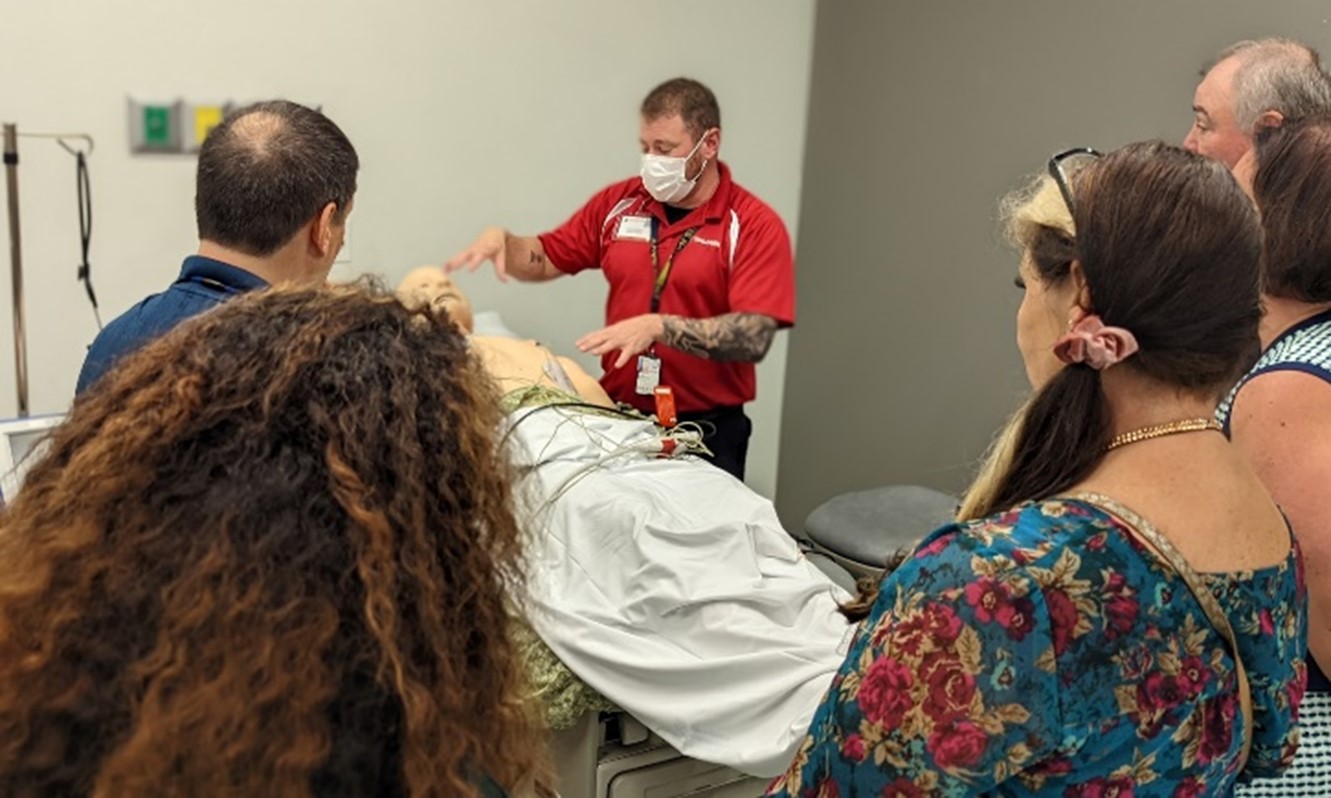How do you ensure that those caring for Veterans are delivering great care? How do you engage staff and leadership across the enterprise in education and learning? How do you bring interprofessional teams to train together? How do you make sure that our teams are prepared for an emergency? At the SLICE & Simulation Showcase 2022, Aug. 29 – Sep. 1, these questions were answered by one word: simulation.
Hosted by Simulation Learning, Evaluation, Assessment, and Research Network (SimLEARN) at the VHA National Simulation Center (NSC) in Orlando, Florida, the Summit brought together sim experts from across the enterprise. There, they shared how their practices in simulation are ensuring Veteran care is continually improving and that VA employees are receiving effective and engaging training.
Over the course of three days, the simulationists not only heard from leading experts in the field, but learned valuable techniques, garnered new information, and made connections that will bring improved sim training to their facilities.
“[Simulation] can lead to an exponential increase in confidence and improve the total Veteran experience,” said Eric Bruns, the executive director of SimLEARN. “We as simulationists can make a new reality for clinical education.”
Simulation impacts Veteran care
Clinical education may seem far removed from the day-to-day of Veteran care, but what was clear throughout the event was the direct impact that it has on the care of Veterans, the retention of staff and the VA mission.
Attendees learned about creative simulation programs, such as escape rooms that are turning training into engaging experiences for staff, making learning both exciting and memorable. They received hands-on experiences with the latest simulation manikins in dynamic experiences provided by the SimLEARN team. Learners were shown how suicide simulation challenges can help nurses better handle difficult situations with suicidal Veterans. Thirty learners even became certified in “Stop the Bleed,” a groundbreaking training that can be used in emergency situations to save lives.
The over 400 face-to-face and virtual learners who attended the SLICE & Simulation Showcase left with new knowledge and techniques that can directly impact the care of Veterans. Through the multitude of programs and connections made at the event, stronger simulation programs will spread throughout the enterprise, providing staff with better education, and resulting in stronger care for Veterans.
Topics in this story
More Stories
Watch the Under Secretary for Health and a panel of experts discuss VA Health Connect tele-emergency care.
The 2024 National Veteran Suicide Prevention Annual Report provides the foundation for VA’s suicide prevention programs and initiatives.
Theranostics is a specialized field of nuclear medicine that uses a two-pronged approach to diagnose and treat cancer.






